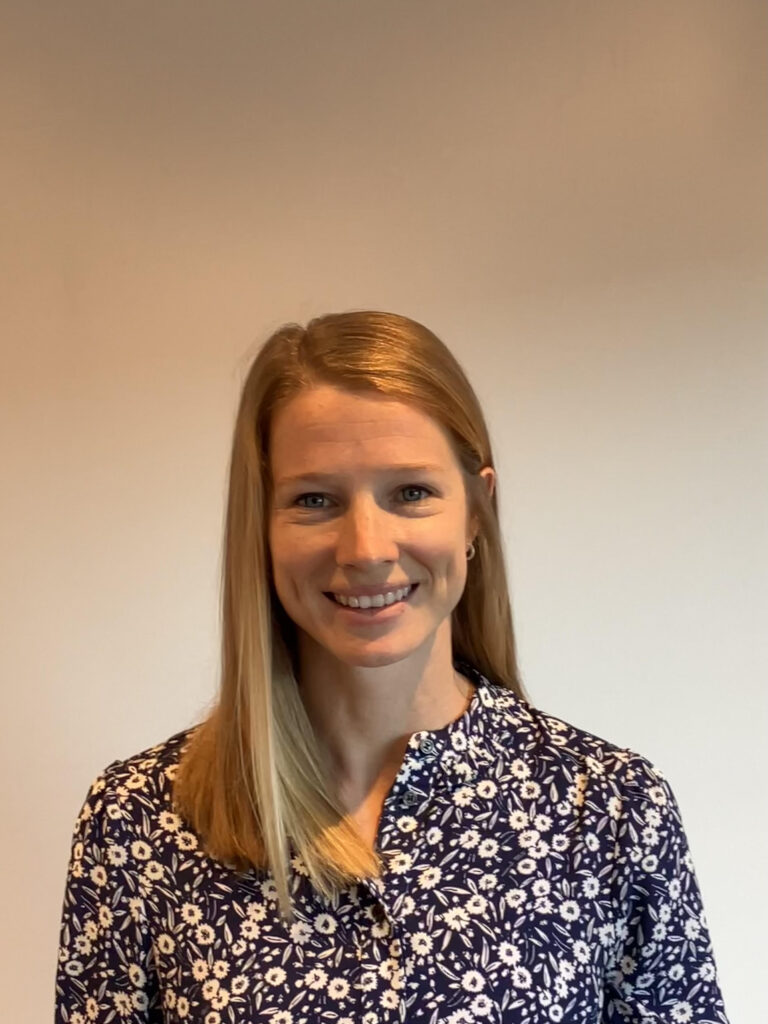Every year, thousands of Australians face delays in receiving a diagnosis for serious lung diseases. These delays can mean missed treatment opportunities, irreversible damage and a life spent struggling to breathe.
Thanks to ground breaking research supported by Lung Foundation Australia, that’s beginning to change.
Dr. Caitlin Fermoyle is part of a new wave of early-career researchers using the latest technology to tackle some of lung health’s toughest challenges.
In January 2024, Dr. Fermoyle received the CREATE Hope Fellowship — a $75,000 grant made possible by Lung Foundation Australia’s Hope Research Fund. This prestigious fellowship backs promising early-career researchers with the potential to deliver real-world impact.
Over a year, Dr. Fermoyle set out to test whether machine learning could do what traditional diagnostic methods often can’t: identify the subtle early signs of pulmonary fibrosis — a progressive lung disease that causes scarring in the lungs — before major damage occurs. Her goal? To give patients a better chance at timely treatment and long-term health.
‘‘Research into the interplay between lung structure and function is critical to understanding how lung diseases develop and can be prevented. I’m passionate about finding new ways to assess lung health so we can reduce the number of people who experience chronic breathlessness.”
A year of life-changing research
Over the course of the project, Dr. Fermoyle and her team:
- Applied 5 deep-learning AI algorithms to more than 1,200 high-resolution lung scans (CT images)
- Identified biomarkers that help predict which patients have rapidly progressive disease and need treatment
- Created a secure, AI-powered platform to help multidisciplinary teams interpret scans more consistently and accurately
- Contributed to the development of consistent CT scan assessment criteria across hospitals and research centres
These breakthroughs are paving the way for doctors to:
- Detect pulmonary fibrosis sooner — before irreversible damage happens
- Tailor treatments more precisely, improving outcomes and quality of life
Dr. Fermoyle presented these findings — highlighting the international significance of her work — at the European Respiratory Society Congress in Vienna in September 2024.
Why this matters for people with lung disease
Pulmonary fibrosis is notoriously difficult to diagnose. Symptoms like fatigue, coughing or shortness of breath are often mistaken for asthma, ageing or other conditions. By the time the disease is diagnosed, lung damage may already be extensive.
Earlier diagnosis means treatment can begin before irreversible damage occurs — improving not only lifespan, but quality of life. It also reduces the need for painful, risky diagnostic tests, easing the burden on patients and families.
Dr. Fermoyle’s work shows that machine learning can help bridge this diagnostic gap — turning complex medical imaging into fast, accurate, and actionable insights.
What’s next?
Dr. Caitlin Fermoyle’s work over the past year has not only advanced early diagnosis in pulmonary fibrosis—it’s also laid the foundation for a promising career in lung health research.
Thanks to the CREATE Hope Fellowship, she has:
- Built a strong track record with multiple publications
- Presented at national and international forums
- Submitted major new grant proposals, including an NHMRC Investigator Grant
- Become a chief investigator on several competitive grants currently under review
Her findings are now being shared with hospitals and research networks across Australia and will inform upcoming implementation studies — the next step in bringing these tools into clinical practice.
Looking ahead, Dr. Fermoyle aims to expand AI-driven diagnostics to other lung conditions and build a long-term research program focused on understanding the causes of lung disease and helping Australians maintain their lung health as they age.
At Lung Foundation Australia, we’re proud to back emerging researchers like Dr. Fermoyle. Because when we support bright minds early in their careers, we help unlock the breakthroughs of tomorrow.
Be part of the next breakthrough
In 2024, Lung Foundation Australia invested over $2.01 million in research — funding the work of dedicated scientists like Dr. Fermoyle who are delivering tangible change for people living with lung disease.
That investment is only made possible thanks to a generous community of donors who believe in the power of science, saving lives.
With your help, we can fuel the next research breakthrough.
Was this page helpful?
Good job! Please give your positive feedback
How could we improve this post? Please Help us.
